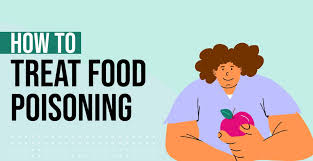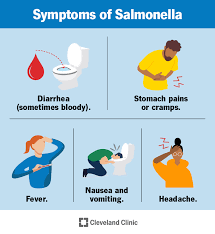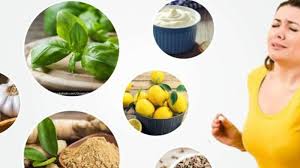
What is food poisoning?
Food poisoning is an irritation or infection in your digestive system that you get from something you eat or drink. It is usually caused by food or drink contaminated with viruses, parasites, or bacteria. However, harmful chemicals can also sometimes cause food poisoning.
1:Food Poisoning Treatment at home
2:Food Poisoning Symptoms
3:When to seek medical help
4:Food Poisoning When Pregnant
5:Home Remedies for Food Poisoning
1:Food Poisoning Treatment at home
Treating food poisoning at home usually involves managing symptoms and staying hydrated. Here’s a guide to help you recover:
1.1:Stay hydrated.
Drink plenty of fluids: Food poisoning can cause dehydration due to vomiting and diarrhea. Drink electrolyte solutions such as water, clear broth, or sports drinks to replenish lost fluids and electrolytes.
Avoid caffeinated and sugary drinks: These can make dehydration worse.
1.2:Eat mixed foods.
Once the vomiting subsides, start with light, easily digestible foods such as:
- Bananas
- Rice
- Apple sauce
- Toast (commonly known as the BRAT diet)
- Simple crackers.
- Avoid greasy, spicy or fried foods as these can further irritate the stomach.
1.3: Relax.

2:Food Poisoning Symptoms:
Symptoms of food poisoning can vary depending on the type of contamination (bacteria, virus, parasite, or toxin), but typical symptoms usually appear within a few hours to a few days of eating the contaminated food.
Here are the most common signs and symptoms:
2.1: Nausea
Feeling nauseous or wanting to vomit.
2.2: Vomiting
Forceful evacuation of stomach contents. It is the body’s way of getting rid of harmful substances.
2.3: Diarrhea
Loose or watery stools, often accompanied by abdominal pain.
2.4: Abdominal pain or cramps
Discomfort or sharp pain in the abdominal area.
2.5: Fever
A mild to high fever may occur as the body fights the infection.
2.6: Fatigue and weakness.
Feeling extremely tired and weak due to dehydration and the body’s effort to fight off illness.
2.7:Headache
Common due to dehydration or as part of the body’s response to infection.
2.8: Not feeling hungry
Loss of appetite due to nausea and discomfort.
2.9: It’s getting cold
Feeling cold or shivering, sometimes accompanied by a fever.
2.10:Dehydration
Symptoms include dry mouth, dizziness, decreased urination, and dark urine, especially due to dehydration from vomiting and diarrhea.
2.11: Bloody stools
In more severe cases, there may be blood in the stool, which indicates a more serious infection.
2.12: Muscle aches
Similar to flu-like symptoms, aches and pains can occur as the body fights the infection.

Symptoms based on specific pollutants:
Bacterial : Severe abdominal pain, bloody diarrhea, high fever.
Viral (eg, norovirus): Vomiting, watery diarrhea, mild fever.
Parasites (eg, Giardia): persistent diarrhea, fatigue, weight loss.
Toxins (eg, from spoiled fish or moldy food): Neurological symptoms such as blurred vision, tingling, or confusion in severe cases.
3:When to seek medical help?
Get medical attention if you experience any of the following:
- High fever (above 101.5°F or 38.6°C)
- Prolonged vomiting or inability to keep liquids down.
- Symptoms of dehydration (dizziness, confusion, rapid heartbeat)
- Severe diarrhea lasting more than 3 days or bloody stools
- Neurological symptoms such as tremors, blurred vision, or weakness.
4:Food Poisoning When Pregnant:
Food poisoning can be especially worrisome during pregnancy because it can affect both the mother and the growing baby.
If you suspect food poisoning during pregnancy, it’s important to be aware of the risks, symptoms, and how to manage the situation.
4.1:Common causes of food poisoning in pregnancy
Listeria: Found in unpasteurized dairy products, soft cheeses, deli meats, and some smoked fish.
Salmonella: Often associated with raw or undercooked eggs, poultry and contaminated produce.
E. coli: Can be found in undercooked meat, unwashed vegetables, or contaminated water.
Toxoplasmosis: from eating undercooked meat or from contact with contaminated soil or cat feces.
4.2:Signs to watch for
Pregnant women may experience common symptoms of food poisoning, but they should be especially alert to the following:
- Nausea and vomiting
- Diarrhea
- Abdominal pain
- fever
- Headache or muscle aches
- Dehydration (dry mouth, dizziness, decreased urination)
- It’s getting cold.

Additional risks during pregnancy:
Listeriosis (infection with Listeria bacteria) can cause:
- Flu-like symptoms (fever, muscle aches)
- Severe complications such as miscarriage, premature birth, stillbirth, or infection in the newborn.
- Salmonella or E. coli infections can cause severe dehydration, blood infections, and sometimes infection in the baby.
What to do if you suspect food poisoning:
when to see a doctor
- You have a fever over 100.4°F (38°C).
- You experience severe vomiting or diarrhea.
- You are showing signs of dehydration (dizziness, decreased urine output).
- You feel constant pain or cramping in your stomach.
- You experience any unusual symptoms such as blurred vision, confusion, or muscle weakness.
- You suspect you have eaten something contaminated with Listeria or Salmonella.
How to prevent food poisoning during pregnancy?
- Avoid high-risk foods:
- Unpasteurized dairy (eg, raw milk, soft cheeses such as feta or brie).
- Deli meats and hot dogs until thoroughly heated.
- Raw or undercooked eggs, meat and seafood.
- Refrigerated smoked seafood, unless cooked.
- Wash fruits and vegetables thoroughly before eating.
- Cook meat and eggs to a safe temperature.
- Avoid cross-contamination by using separate cutting boards for raw meat and vegetables.

5:Home Remedies for Food Poisoning
Home remedies for food poisoning can help ease symptoms and help with recovery, but it’s important to focus on rehydration, soothing the stomach, and boosting the body’s natural healing process. Here are some effective home remedies to try:
5.1: Ginger tea
Ginger has natural anti-inflammatory properties and helps relieve nausea and vomiting. You can make ginger tea by boiling a few slices of fresh ginger in water for 10 minutes, then sip it slowly.
Alternatively, ginger candies or capsules may also provide relief.
5.2: Apple cider vinegar
Apple cider vinegar (ACV) can help balance stomach acid and relieve stomach upset. Mix 1-2 tablespoons of ACV in a glass of warm water and drink before meals or at the onset of symptoms.
Some people like to add a bit of honey for flavor and its antibacterial properties.
5.3: Lemon juice
Lemon juice contains strong antibacterial properties and helps flush out toxins from the digestive system. Drinking a glass of water with a spoonful of fresh lemon juice helps to soothe the stomach.
Add a pinch of salt for added benefit.
5.4: Peppermint tea
Peppermint is known to relax stomach muscles, reduce nausea, pain and bloating. Drinking peppermint tea can be calming and helps to heal the digestive system.
You can make fresh peppermint tea or use store-bought tea bags.
5.5: Banana
Bananas are rich in potassium, which helps replace electrolytes lost during vomiting and diarrhea. They are also gentle on the stomach and can aid in recovery.
Include them as part of a BRAT diet (bananas, rice, applesauce, toast).
5.6:Yogurt
Probiotic-rich yogurt can help restore healthy bacteria in your gut and fight harmful bacteria that cause food poisoning.
Choose plain yogurt with live cultures, and avoid sweetened or flavored varieties.
5.7: Honey
Honey has natural antibacterial properties and can help soothe the stomach and reduce inflammation. It can also boost energy and support the immune system.
You can add honey to hot water, tea or lemon juice for added benefits.
5.8: Cumin
Cumin has antiseptic and digestive properties that relieve indigestion and bloating. You can boil a teaspoon of cumin seeds in water, strain it, and drink the water to soothe your stomach.
Add a pinch of salt or honey to taste.
5.9: Basil leaves
Basil has antibacterial properties that help fight food-borne pathogens and ease stomach discomfort. You can make tea with basil leaves or add crushed leaves to water.
Chewing fresh basil leaves with honey can also relieve symptoms.
5.10: Chamomile tea
Chamomile is a natural remedy for nausea, vomiting and indigestion. Drinking chamomile tea can help calm the stomach, reduce inflammation, and promote relaxation.
5.11: Cinnamon tea
Cinnamon has antibacterial properties and helps reduce gas, bloating and nausea. Boil a teaspoon of cinnamon powder or cinnamon stick in water, strain and sip the tea.
5.12: Hydration with electrolytes
Oral Rehydration Solutions: Prepare an oral rehydration solution by mixing 1/2 teaspoon of salt and 6 teaspoons of sugar in 1 liter of water to help replenish lost electrolytes.
Coconut water, herbal teas and clear broths can also help with hydration.
5.13: Fenugreek seeds and curd
Fenugreek seeds mixed with yogurt can ease stomach pain and reduce diarrhea. Chew 1 teaspoon of fenugreek seeds with a tablespoon of curd for quick relief.
5.14: Garlic
Garlic has strong antiviral, antibacterial and antifungal properties. Eating raw garlic or drinking garlic tea helps fight infection and relieve digestive problems.
5.15: Activated charcoal
Activated charcoal tablets can help absorb toxins in the stomach, which can relieve symptoms. It is best to consult a health care provider before using activated charcoal, as it may interfere with medications.

Important tips
- Avoid solid food for a few hours to settle your stomach.
- Stay hydrated: Sip water or rehydration drinks frequently to prevent dehydration.
- Rest: Allow your body to recover by getting plenty of rest.
- These remedies can help treat mild food poisoning at home, but only if symptoms worsen or persist for more than 2-3 days, or if you have severe symptoms such as a high fever, blood in the stool, or dehydration. If encountered, it is important to seek medical attention.





